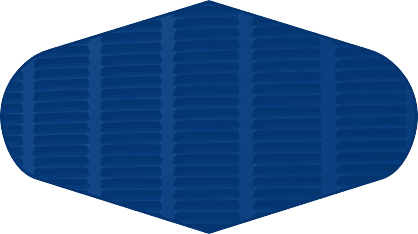Earth Day is a great time to take stock of your energy consumption and think about ways to cut back. HVAC systems are one of the largest users of energy in the modern household, so you can make a big difference just by tweaking your heating and cooling usage. Here are some great ways you can save energy while still enjoying comfortable indoor air temperatures and humidity levels.
Know the Best Temperatures for Operating Your System
Your system has to work harder when you suddenly raise or lower the temperature by several degrees. Therefore, you will get the most savings if you keep your temperature consistent instead of trying to turn it off every time you leave your home. According to Energy Star, the best temperature for winter is 68 degrees Fahrenheit, while the best temperature for the summer is 78 degrees. This lets you keep your home at a reasonably comfortable temperature without having to run your system too much.
Control Your Temperature With Window Coverings
Even though modern windows are often double-glazed and UV-resistant, the sun’s rays still have a huge effect on indoor temperatures. Using light-blocking blinds and curtains in the summer can help keep your home cool without requiring any energy at all. In the winter, remove coverings to get natural warmth from the sun and cut back on running your heater. To get the most efficiency out of your window coverings, aim for thick, opaque curtains that you can close at night to add even more insulation to your windows.
Regularly Maintain Your HVAC System
When you skip HVAC maintenance, a lot of debris and dust can build up, making it harder for your unit to run. This requires using more energy, resulting in higher energy bills and slower cooling and heating. Therefore, one of the best things you can do to improve efficiency is to talk to Jco Heating A/C Electrical about HVAC maintenance services in Springfield. By making sure your system is routinely cleaned and kept in good working order, you can keep it operating at peak efficiency.
Seal Any Air Leaks Around the House
Tiny gaps around doors, windows, and walls can make air leak out of your home or let outdoor air into the home. This makes your HVAC system have to work harder to keep your indoor temperature at the desired level. Stopping this problem can be quite easy. Often, all you have to do is add insulating spray foam around gaps or apply weatherstripping to doors. If you are not sure about whether or not you have any leaks, consider getting an energy audit. The technician can carefully analyze your home and let you know about areas where the air is leaking from your home.
Remember to Change Your Filters
When you forget to change your HVAC filters, your system struggles to pull in air. The air it does get can be filled with dust and debris, so your system will also have to work harder to cool your home. All this extra work puts a lot of stress on your HVAC system, so you end up using far too much power. Depending on the type of filter you have, you need to remember to change it every one to six months. If you have multiple pets, you will need to change it more often.
Improve Your Home’s Insulation
Unless your home is brand new, it probably does not have energy-efficient insulation. Adding modern insulation to an old home can help you keep temperatures comfortable inside without having to run your HVAC unit constantly. This can actually be very easy as long as you select types of insulation that do not require you to remove your walls.
Get an Energy-Efficient Appliance
If it is about time to replace your air conditioner, one of the best things you can do is get an energy-efficient HVAC system. These modern systems are carefully designed to use as little energy as possible. By investing in a machine with a high SEER rate, you can be confident you will save energy in the future.
Jco Heating A/C Electrical in Springfield, OR, is here to help with all your HVAC needs. We can help with furnace installation, schedule routine furnace maintenance, and perform emergency HVAC repairs.
Give us a call to schedule your next appointment.

 WE SERVICE ALL MAKES & MODELS
WE SERVICE ALL MAKES & MODELS